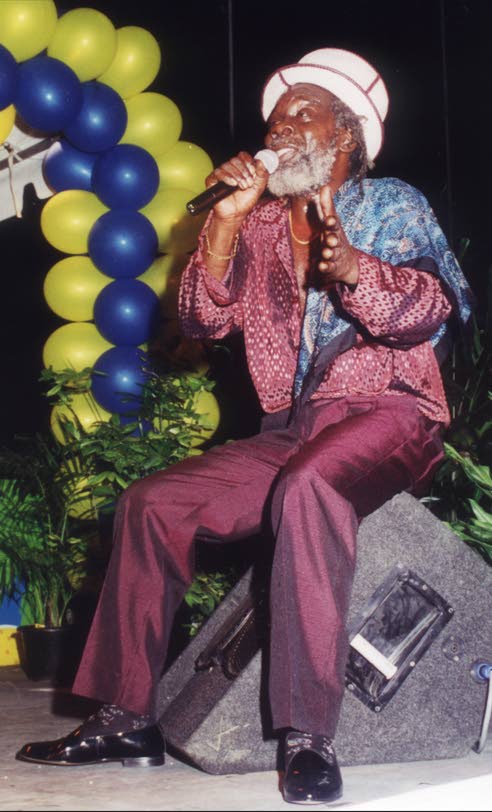Black Stalin, a master of lyrics and melody

JOAN YUILLE-WILLIAMS
former Minister of Culture
The death of Leroy Calliste, Black Stalin, has driven me and all calypso enthusiasts into a state of mourning, making us all ponder on how over the last century, we have, as Caribbean people, lived, loved, sinned, and survived the pitfalls of life in general, and living the Caribbean and Trinidadian experience in particular.
We have done so, to a certain extent, because of a man who by his choice of name, Black Stalin, was aware of his Caribbean and Trinidadian identity, his Africanisms, the history of his people, the spiritual nature of his being and his relationship with his God.
In terms of his godliness, he reminded us, in one of his songs, that God was the creator of this world, over which “we the people have no control.” The calypso, with its emphasis on lyrics, music, and performance, was Black Stalin’s way of shaping and demonstrating these spiritual and mundane ideals of life itself.
In terms of music and his choice of melody, his calypsoes echoed our syncopation in language, metrical accents, and harmonic tones, while our way of speaking using Caribbean and Trinidadian terms was expressive in his language and lyrics. Who else, outside our Caribbean civilisation, could understand expressions such as “Nothing ain't strange in the life of a man out for change,” or “Black man don’t get nutten easy.”
In terms of performance, who else knew how to manage and master the stages at the Queen’s Park Savannah and Naparima Bowl, dancing to the North, gliding to the South, shuffling to the East and West, with boundless energy like Black Stalin? Who else could have energised listeners with pulsating rhythms – now fast – now slow – now faster – than Black Stalin? In terms of his performances, each calypso of his was given its own energy based on its theme and its message to the listener. When then, the “Black man came out to party,” the world of calypso was enthralled by his treatment, musical and otherwise, of the theme.
Black Stalin’s performances made us realise not only the importance of the calypso artform, but showed us, especially the youth, not only how in our history as Caribbean people, we have suffered from elitism, eurocentrism, colonialism and neo-colonialism, indentureship, and enslavement, but also how we have survived and have overcome all these forms of negativity.
In calypsoes like Black Man Don’t get Nothing Easy, we were made aware of the difficulties to be faced along the British colonial road; in Sufferers, we were taught to understand the pangs of hunger unleashed on those less fortunate or unemployed; in Isms and Schisms, we saw that culture’s most destructive enemy is ideology, especially ideology that belittles races and peoples; in Black Man feeling to Party, we learned the ecstasy of family life, and in More Come, our history as captives in Africa before coming to the Caribbean was brought to us in a manner that only the calypso can capture.
In addition to all these intriguing and inspiring songs, for those of us who, like Black Stalin, understood our African legacy, we were reminded by him that “wearing dashiki is fine, but changing your clothes doesn’t change your mind.”
Black Stalin not only therefore taught us how to survive in the Caribbean and how to promote the learned, acceptable forms of Caribbean civilisation, but he left us tools for the young, the uneducated, the unschooled and the ignorant to understand the arms and weapons needed for Caribbean survival. Black Stalin therefore demonstrated to the world that here in a little corner of this universe called TT, we have forged a music that is world class; a music that is both a weapon and a ritual of resistance; and carries with it the divine spark of spirituality and humanism.
Now that he has passed to his eternal reward, let us remember one of his quotes in his immortal calypso entitled Times. “In times of sorrow, we must be strong.” Therefore, stay strong all you mourners and calypso lovers.
Editor's note: Black Stalin died on December 28, 2022 at the age of 81 and was buried on January 5 after a cultural service and street procession in San Fernando.

Comments
"Black Stalin, a master of lyrics and melody"